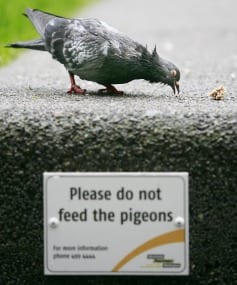
by Pigeon Patrol | Mar 6, 2023 | MBCA, pet bird, Pigeon Control, Pigeon Droppings, Pigeon Patrol's Services, Pigeon Predators
In January 2019, a child died in a Scottish hospital after developing a fungal infection caused by exposure to pigeon droppings. An elderly patient also died in the same hospital of another condition that was exacerbated by exposure to pigeon droppings. It was determined that both patients were exposed to the contaminants via the ventilation system, which was found to contain pigeon droppings. These deaths brought to the forefront a question that many people who are living with pigeon infestations have: in addition to being disruptive, are pigeons actually dangerous? Here are the facts you need to know.
Pigeon droppings contain bacteria and fungi that can cause disease.
Exposure to pigeon droppings can lead to a number of different diseases. Some of the most common infections associated with pigeons are:
· E. coli: E. coli infections are usually the result of pigeon droppings being present in water or in food that is later consumed. This infection causes nausea, abdominal cramps, fever, and vomiting.
· Histoplasmosis: This is a dangerous fungal infection that affects the lungs, or rarely, other parts of the body. It causes flu-like symptoms, including fever, shortness of breath, chest pain, fatigue, and loss of appetite. It can be fatal in severe cases.
· Cryptococcus: This is another fungal infection that affects the lungs and can spread to the brain. In its early stages, it can cause a cough, chest pain, fever, and shortness of breath. When it spreads to the lungs, it causes headaches, neck pain, changes in behavior, confusion, and sensitivity to light. It can also be fatal.
· Psittacosis: Psittacosis is a bacterial infection that causes fever, headaches, a rash, and can lead to pneumonia, if left untreated.
· Candidiasis: This fungal infection can affect multiple parts of the body, including the mouth, lungs, urogenital tract, and skin. This infection may require prolonged periods of antifungal medications to treat.
· Salmonellosis: Pigeon droppings may contain the bacteria salmonella, which can cause this infection. Typically, people are exposed to these bacteria when pigeon droppings come into contact with food or food preparation surfaces. This infection causes nausea, vomiting, and abdominal cramps.
Pigeons also carry other potential health risks.
It is not just the droppings of pigeons that are dangerous. Pigeons themselves can carry mites and fleas, which can then attach to your pets or enter your home, causing skin irritation and itchiness. They can also spread infections through bites that are dangerous to both people and pets.
Pigeons can also carry West Nile virus. Although people are unlikely to contract West Nile virus directly from pigeons, it is still important to avoid removing any dead pigeons from your property without the help of a professional for this reason.

People with weakened immune systems are most at risk.
The infections that pigeons are likely to transmit do not affect everyone at the same rate. Many healthy adults are able to fight off infections caused by exposure to bacteria and fungi from pigeon droppings. If they do become ill, then they are likely to have very mild infections.
However, although it is always possible for someone who is healthy to become very ill from these conditions, other people are more at risk. Infants and children are more likely to experience severe symptoms when they are exposed to a disease via pigeon droppings. People who are immuno-compromised, such as people with HIV or who are undergoing chemotherapy, also have a higher risk of developing severe symptoms and complications. Lastly, the elderly are prone to severe symptoms from pigeon-related diseases.
Even without exposure to a disease, some people may have allergy symptoms, including respiratory problems, rashes, and itchiness, as a result of a pigeon infestation near their home or business.
For safety reasons, only professionals should handle pigeon control.
If you have a pigeon infestation, it’s important to deal with the issue as soon as possible. However, trying to get rid of pigeons and clean up their droppings on your own is not safe. Pigeon control professionals are trained in safe management techniques and have the proper equipment required to clean up after a pigeon infestation safely.
One of the biggest risks of cleaning up pigeon droppings on your own is that you could release dust into the air that contains bacteria and fungi that cause infection. Not only would you be at risk from inhaling the bacteria and fungi yourself, but you could also inadvertently introduce the contaminants into the HVAC system in your home, allowing them to spread into your indoor air and putting your family at risk.
Source
Pigeon Patrol Products & Services is the leading manufacturer and distributor or bird deterrent (control) products in Canada. Pigeon Patrol products have solved pest bird problems in industrial, commercial, and residential settings since 2000, by using safe and humane bird
deterrents with only bird and animal friendly solutions. At Pigeon Patrol, we manufacture and offer a variety of bird deterrents, ranging from Ultra-flex Bird Spikes with UV protection, Bird Netting, 4-S Bird Gel and the best Ultrasonic and audible sound devices on the market today.
Voted Best Canadian wholesaler for Bird Deterrent products ten years in a row.
Contact us at 1 877-4-NO-BIRD,(604) 585-9279 or visit our website at www.pigeonpatrol.ca
Pigeon/Pigeon Patrol / Pigeons Roosing / Vancouver Pigeon Control / Bird Spikes / Bird Control / Bird Deterrent / PIgeon Deterrent / Surrey Pigeon Control / Pest / Seagull deterrent / Vancouver Pigeon Blog / Birds Inside Home / Pigeons in the cities / Ice Pigeons / What to do about pigeons / sparrows, Damage by Sparrows, How to Keep Raccoons Away, Why Are Raccoons Considered Pests / De-fence / Pigeon Nesting / Bird Droppings / Pigeon Dropping / woodpecker control / Professional Bird Control Company / Keep The Birds Away / Birds/rats/seagull/pigeon/woodpecker/dove/sparrow/pidgeon control/pidgeon problem/pidgeon control/flying rats/pigeon problems/ bird netting/bird gel/bird spray/bird nails/bird guard

by Pigeon Patrol | Feb 25, 2023 | MBCA, pet bird, Pigeon Control, Pigeon Droppings, Pigeon Patrol's Services, Pigeon Predators
Why do species die out? This is the overarching question being asked by many leading researchers. Knowing more about what leads to a species’ becoming extinct could enable us to do something about it. The passenger pigeon is a famous example and the species has been studied extensively.
The passenger pigeon (Ectopistes migratorius) was once found in huge numbers in North America. Records tell of passing flocks that darkened the skies for several days at a time. The species may have peaked at five billion individuals. A more conservative estimate is three billion.
Within a short time, the species disappeared completely.
“Given the huge size of the population, it’s simply amazing that the species disappeared so quickly,” says Tom Gilbert.
Gilbert is a professor at the University of Copenhagen’s Centre for GeoGenetics, but he also has a part-time position as an adjunct professor at the Norwegian University of Science and Technology (NTNU).
The human role
The history of the passenger pigeon is interesting, partly because it can tell us something about how and why species become extinct.
Native Americans also relied on passenger pigeons for food. But at least in parts of the passenger pigeons’ range, people had learned to harvest the species at a sustainable level that didn’t threaten to eradicate it.
It was common in some parts of North America to only eat young pigeons that were hunted at night, since this did not seem to scare away the adult birds or prevent them from re-nesting.
But starting around 1500, a more aggressive variant of humans came to the continent with the arrival of Europeans. The hunt for passenger pigeons grew and culminated in a massive hunt for the species throughout the 1800s, before the species finally collapsed and disappeared.
So were the Europeans then really the ones to blame for the collapse?
Already headed to oblivion?
In 2014, a study in published in the scientific journal PNAS strongly suggested that humans were simply the final straw in destroying a species that was already vulnerable and headed to oblivion.
The researchers asserted that despite their enormous numbers, the passenger pigeons were already in trouble. The population of the species varied greatly, similar to lemmings, but over a longer period of time.
When the Europeans arrived, the species was already in a strong decline. The population was plummeting long before Europeans arrived, and perhaps Europeans even contributed to a short-term increase in numbers.
Studies of the genetic variation of the species using an investigative method called PSMC formed the background for these assertions. And now we have to concentrate a bit.
From one to many
All of an individual’s genes are called a genome. You have a genome, your mom has her own genome, your dog has one and the neighbour’s cat has yet another. These can be broken down into chromosomes and genes and base pairs, but you only have a single genome.
So, all of your chromosomes and genes are found in this one genome, but at the same time this genome is unique to just you and only you. Unless, that is, you have an identical twin or are a termite or belong to another species where the individuals are largely identical clones. (In the last case, it’s remarkable that you can read this.)
Here is the crux of the matter:
The PSMC method can use the information in the genes of a single individual of a species to map the history of the species.
You should therefore be able to see how the species developed over many generations, and estimate how many individuals there were at any given time, all based on a single genome.
Humans partially off the hook
Using this method, researchers found that the number of passenger pigeons was in free fall even before the arrival of the Europeans.
Although the species might not have become extinct, it would have shrunk significantly in any case, maybe to only a few hundred thousand individuals.
People were just the final factor in their demise. We may have pushed the passenger pigeons off the cliff, but the species was already on its way there.
So — according to the researchers behind the study in PNAS — it wasn’t just the Europeans’ fault.
It sounds almost too good to be true that you can come up with something so definitive based on information from just one or a few individuals. And in this case it is — at least if we’re to believe a new study that has recently been published in the journal Science.
Ineffective for passenger pigeons
The problem is that the PSMC method can’t be used on passenger pigeons. The new research in Science provides completely different results.
Leading molecular biologist Beth Shapiro is the main author of the Science article, and Tom Gilbert is one of the study’s contributors.
PSMC is based on the assumption that genetic variations occur relatively evenly all along the chromosomes that constitute the genome. That is, genetic changes are equally likely to occur at the ends of a chromosome as in the middle. But this turns out not to be the case for this species.
“Passenger pigeons don’t have the variation patterns that we’d expect, because of the strong selection on genes that appear to have been important throughout the species’ history. So it doesn’t work to use PSMC in this case,” said Gilbert.
In passenger pigeons, most of the genetic diversity was found at the ends of the chromosome. The middle of the chromosome showed little variation from one generation to the next as a result of the selection on these genes.
This fact may not sound revolutionary, but it yields completely different results if you try to read the history of the species based on the genome of a single individual.
You have to take into account that variations are greatest in certain parts of the chromosome rather than evenly distributed throughout. This makes the PSMC method unusable in this context.
Used another method
The researchers behind the article in Science didn’t use the PSMC method. Instead, they used mitochondrial DNA from 41 passenger pigeons as their starting point. Now we have to concentrate again.
Your DNA is not your only inheritance. Mitochondrial DNA is a distinct, separate inheritance found in certain cells called mitochondria.
Regular DNA is a combination of the inheritance from your father and mother. But mitochondrial DNA is only transmitted from your mother. Variations in mitochondrial DNA also occur due to mutations, and happen relatively consistently over time.
This is a different point of departure for understanding how a species develops over time, and the results can be quite different from those generated using the PSMC method.
In addition, the study presented in Science analysed the entire genomes from four passenger pigeons and compared them with two genomes from band-tailed pigeons (Patagioenas fasciata), one of the closest relatives of the passenger pigeon.
The final result was that the new study ended up with completely different answers about the passenger pigeons and why the species met its demise.
Genetic diversity
The new study is interesting for several reasons. It tells us about the genetic diversity of the passenger pigeon, but also supports an entirely different explanation for the species’ extinction.
Scientists previously believed that the larger the population of a species is, the more genetically diverse it will be. But this theory has turned out to be wrong, as the recent passenger pigeon research has shown.
According to the article in Science, the large population size appears to have enabled passenger pigeons to adapt and evolve more quickly and thus remove harmful mutations.
In species with fewer individuals, chance can cause a less beneficial mutation to persist, but chance plays less of a role in species with greater numbers of individuals.
“Mutations that provide a major evolutionary benefit would spread rapidly,” says Gilbert.
The fact that beneficial mutations became incredibly dominant so quickly simply led to the disappearance of other genetic variants.
This in turn led to the genetic diversity in the passenger pigeon being surprisingly low in relation to the number of individuals. This may have made the species more vulnerable to changes.
But that was not why the passenger pigeon died out.
Our mistake
“The passenger pigeon died out because of people,” is Gilbert’s short version.
The passenger pigeon wasn’t in trouble prior to Europeans arrival in North America. Nothing suggests that the species was struggling in any way.
Perhaps this isn’t that surprising. In the 19th century passenger pigeons were so numerous that there were contests to shoot as many of them as possible during a certain period of time. In one competition, the winner had shot 30 000 birds.
If nothing else, the story of the passenger pigeon has contributed to a greater understanding that even prolific species can become extinct.
Something to learn
The large grasshopper Melanoplus spretus from the western United States suffered the same fate. It went from a population of several trillion to zero in a few decades, possibly because farmers destroyed its breeding grounds. In Norway and across the whole of the North Atlantic, the great auk (Pinguinus impennis) died out after people harvested them in large numbers.

People ate passenger pigeons in huge amounts, but they were also killed because they were perceived as a threat to agriculture. As Europeans migrated across North America, they thinned out and eliminated the large forests that the pigeons depended on. The pigeons lived primarily on acorns.
As the species was already dying out, 250,000 birds — the last big flock — were shot on a single day in 1896. That same year, the last passenger pigeon was observed in Louisiana. It was also shot.
The pigeons were probably dependent on a large flock size to reproduce. Their instincts didn’t work when only a few individuals remained here and there.
The last passenger pigeon died in the Cincinnati Zoo in 1914.
Source
Pigeon Patrol Products & Services is the leading manufacturer and distributor or bird deterrent (control) products in Canada. Pigeon Patrol products have solved pest bird problems in industrial, commercial, and residential settings since 2000, by using safe and humane bird
deterrents with only bird and animal friendly solutions. At Pigeon Patrol, we manufacture and offer a variety of bird deterrents, ranging from Ultra-flex Bird Spikes with UV protection, Bird Netting, 4-S Bird Gel and the best Ultrasonic and audible sound devices on the market today.
Voted Best Canadian wholesaler for Bird Deterrent products ten years in a row.
Contact us at 1 877-4-NO-BIRD,(604) 585-9279 or visit our website at www.pigeonpatrol.ca
Pigeon/Pigeon Patrol / Pigeons Roosing / Vancouver Pigeon Control / Bird Spikes / Bird Control / Bird Deterrent / PIgeon Deterrent / Surrey Pigeon Control / Pest / Seagull deterrent / Vancouver Pigeon Blog / Birds Inside Home / Pigeons in the cities / Ice Pigeons / What to do about pigeons / sparrows, Damage by Sparrows, How to Keep Raccoons Away, Why Are Raccoons Considered Pests / De-fence / Pigeon Nesting / Bird Droppings / Pigeon Dropping / woodpecker control / Professional Bird Control Company / Keep The Birds Away / Birds/rats/seagull/pigeon/woodpecker/dove/sparrow/pidgeon control/pidgeon problem/pidgeon control/flying rats/pigeon problems/ bird netting/bird gel/bird spray/bird nails/bird guard
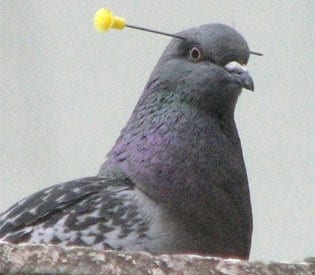
by Pigeon Patrol | Feb 25, 2023 | history of pigeons, MBCA, pet bird, Pigeon Control, Pigeon Droppings, Pigeon Patrol's Services, Pigeon Predators
The politicians are seated in a semi-circle at a meeting of the council. One by one, they raise their voices as part of the deliberation. “I believe it is time we took a position on this,” says a black-blazered woman. “It’s not an industry that I want to support,” a second woman, wearing dark-rimmed glasses, reads into the official record.
“It’s time,” concludes the mayor, donning the heavy chain that is the insignia of his office, “to end the practice in our community.”
It is a fall meeting of the District of North Vancouver’s city council and they are discussing whether people should be allowed to keep pigeons. Councillors Lisa Muri, in the blazer, and Megan Curren, with the glasses, ultimately vote with the mayor in favour of an outright pigeon ban.
Coun. Matthew Bond, one of those who votes against, says skeptically, “I don’t necessarily see this as a good use of our time.” But the bylaw passes, four to two.
Something smells, though. Only one property in the community is known to harbour pet pigeons. Only one complaint about pigeons, dating back several years, is known to be active. Only one city councillor has recused herself from the discussion. “I have been in a situation like this,” Coun. Betty Forbes says, at the same meeting. “So I’m stepping aside.”
One plus one plus one equals . . . a conflict of interest?
Documents obtained by the CBC under access-to-information seem to bolster that view of events. The “situation” was that Forbes lived next-door to pigeons. That she did not like pigeons. And that after complaining to the city as a private citizen to no avail, she took matters into her own hands; after being elected to council in 2018, in an email to two fellow councillors, she requested a bylaw banning residents from keeping the birds.
Emails viewed by Maclean’s suggest that during the spring, Muri initiated a process to change the district’s pigeon ownership rules, and kept Forbes up to date on its progress. But the whole project has since run into trouble because it turns out Kulwant Dulay, Forbes’ neighbour, cares deeply about his pigeons. He cares enough to go to court.
His petition to B.C. Supreme Court, dated Dec. 4, seeks to have the bylaw declared illegal and set aside. It relies heavily on the CBC’s reporting, referencing emails between Forbes and Muri earlier this year that appear to reveal a plot to hatch the bylaw.
Dulay is arguing that Forbes’s involvement was “biased and bad faith and acting in a conflict of interest,” says Camille Chisholm, a lawyer representing the pigeon enthusiast. The district has retained its own lawyers and was expected to respond in January.
The same week as Dulay’s petition was filed, the District of North Vancouver announced it was tasking former B.C. privacy commissioner David Loukidelis with investigating how the pigeon ban came to be. His review, the district announced, will assess the “awareness” of conflict-of-interest rules by councillors. The process is expected to take a couple of months.
Dulay, Chisholm adds, has kept homing pigeons as pets for years—including during his time in India before he immigrated to Canada. “My neighbours in the front and back, everybody loves my pigeons,” says Dulay, adding that other than Forbes’s, he hasn’t had a complaint in 17 years. “Everybody comes to my house and looks at them. It looks cool, them flying around.” Some have names. One is called “Big Boss.” His favourite pigeon is blue and white. He said it always comes to his hand.
Dulay keeps his 15 birds in a coop that’s about as tall as the backyard fence and roomy enough for him to enter and move around. During the warmer months, he lets them out to fly around the neighbourhood, including over other people’s yards. He said they always return.
Lately, he has wondered whether Forbes has a problem with him, not his pigeons. He said she “never talks” to him, and notes that he has never complained about her two barking dogs, though he believes he might have reason to.
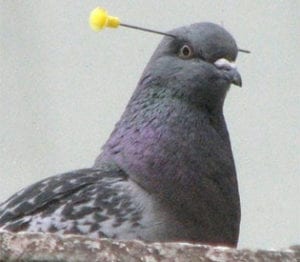
His across-the-street neighbour, meanwhile, has spoken in his support. “I’ve had opportunity to go over and see the coop,” Krista Page told council on Nov. 18. ”It is clean. There’s no foul smell. I’ve never met neighbours that keep a tidier driveway and home and everything.” Page noted there have been no complaints from the Dulays’ other next-door neighbour, adding: “I just feel that this is very much a misuse of power.”
Forbes declined an interview request from Maclean’s but insisted in an email that there is “another set of correct facts” to the story. “However, because the mayor has requested an inquiry of all council and himself,” the email added, “I am unable to make any comments at this time.”
Her only public response came at the end of the same meeting Krista Page attended. “If I have erred in any way,” she said, “I assure council and the community that it was done inadvertently and in good faith with my understanding, as a new councillor, of the conflict-of-interest rules.”
Muri echoed Forbes in an email to Maclean’s, saying: “We are currently reviewing the process of this bylaw, so it would be inappropriate for me to comment.” But a response to the petition later filed in court by her lawyers denies the councillor was aware of any interest Forbes could’ve had in a pigeon ban beyond one “in common with electors of the municipality generally.”
The submission argues that neither councillor stood to gain financially from the bylaw and doubles down on the councillors’ position that the ban is legitimate and serves to protect residents from current and future pigeon keepers who might “adversely impact them or their property.”
To some, this is more than a dispute between neighbours. Givo Hassko, who is on the board of the Vancouver Poultry & Fancy Pigeon Association, told council in November he believed this was a test case for corruption in Canadian politics writ large. “If there are no consequences to how council goes to change bylaws here locally or Canada-wide,” he said, “then anyone—anyone—would get a green light.”
Hassko set up a GoFundMe to help with Dulay’s legal fees. At the time of writing, it had raised $700. A single commenter named Wayne, who pitched in $55, offered this input: “It is important that pigeons are not homeless.”
Source
Pigeon Patrol Products & Services is the leading manufacturer and distributor or bird deterrent (control) products in Canada. Pigeon Patrol products have solved pest bird problems in industrial, commercial, and residential settings since 2000, by using safe and humane bird
deterrents with only bird and animal friendly solutions. At Pigeon Patrol, we manufacture and offer a variety of bird deterrents, ranging from Ultra-flex Bird Spikes with UV protection, Bird Netting, 4-S Bird Gel and the best Ultrasonic and audible sound devices on the market today.
Voted Best Canadian wholesaler for Bird Deterrent products ten years in a row.
Contact us at 1 877-4-NO-BIRD,(604) 585-9279 or visit our website at www.pigeonpatrol.ca
Pigeon/Pigeon Patrol / Pigeons Roosing / Vancouver Pigeon Control / Bird Spikes / Bird Control / Bird Deterrent / PIgeon Deterrent / Surrey Pigeon Control / Pest / Seagull deterrent / Vancouver Pigeon Blog / Birds Inside Home / Pigeons in the cities / Ice Pigeons / What to do about pigeons / sparrows, Damage by Sparrows, How to Keep Raccoons Away, Why Are Raccoons Considered Pests / De-fence / Pigeon Nesting / Bird Droppings / Pigeon Dropping / woodpecker control / Professional Bird Control Company / Keep The Birds Away / Birds/rats/seagull/pigeon/woodpecker/dove/sparrow/pidgeon control/pidgeon problem/pidgeon control/flying rats/pigeon problems/ bird netting/bird gel/bird spray/bird nails/bird guard
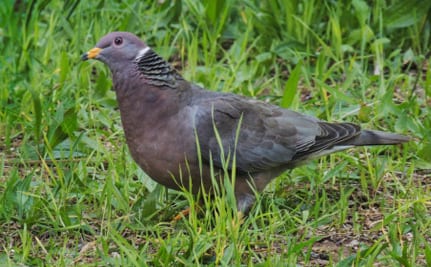
by Pigeon Patrol | Feb 6, 2023 | MBCA, pet bird, Pigeon Control, Pigeon Droppings, Pigeon Patrol's Services, Pigeon Predators
A raving lunatic beheaded two pigeons in Bryant Park, proclaimed he was a “vampire” — and guzzled their blood in front of a horrified crowd, witnesses told The Post.
“He was holding up the pigeons and drinking their blood, letting the blood drip down his shirt,” recalled shocked onlooker Dominic D.
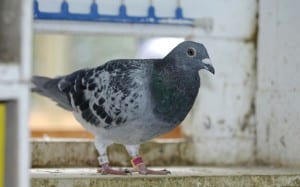
“He did it twice,” the 32-year-old said. “He was covered in blood. He said he was a vampire. It was pretty disgusting.”
Witnesses told The Post that the man threw one of the dead bird heads and splattered blood all over the shirt of a person who was eating lunch. He then calmly waited for cops to arrive.
“He was very calm when the police came,” explained Clarissa Plair, a 26-year-old Theology student who spends a lot of time in Bryant Park and has seen the pigeon perp before.
“He’s always here, yelling at people on the street,” she said. “He was telling [police] he’s a vampire.”
Authorities took a man into custody about 15 minutes later and transported him to St. Luke’s-Roosevelt Hospital for a pysch evaluation, according to officials.
Photos and video posted on Twitter showed the bloody aftermath, with several pigeons swooping in to mourn their fallen bird brethren.
While the man behind the fowl fatalities is known to sit in the Bryant Park fountain drinking beer, witnesses said he’s never gone after any of his feathered friends before.
Source
Pigeon Patrol Products & Services is the leading manufacturer and distributor or bird deterrent (control) products in Canada. Pigeon Patrol products have solved pest bird problems in industrial, commercial, and residential settings since 2000, by using safe and humane bird
deterrents with only bird and animal friendly solutions. At Pigeon Patrol, we manufacture and offer a variety of bird deterrents, ranging from Ultra-flex Bird Spikes with UV protection, Bird Netting, 4-S Bird Gel and the best Ultrasonic and audible sound devices on the market today.
Voted Best Canadian wholesaler for Bird Deterrent products ten years in a row.
Contact us at 1 877-4-NO-BIRD,(604) 585-9279 or visit our website at www.pigeonpatrol.ca
Pigeon/Pigeon Patrol / Pigeons Roosing / Vancouver Pigeon Control / Bird Spikes / Bird Control / Bird Deterrent / PIgeon Deterrent / Surrey Pigeon Control / Pest / Seagull deterrent / Vancouver Pigeon Blog / Birds Inside Home / Pigeons in the cities / Ice Pigeons / What to do about pigeons / sparrows, Damage by Sparrows, How to Keep Raccoons Away, Why Are Raccoons Considered Pests / De-fence / Pigeon Nesting / Bird Droppings / Pigeon Dropping / woodpecker control / Professional Bird Control Company / Keep The Birds Away / Birds/rats/seagull/pigeon/woodpecker/dove/sparrow/pidgeon control/pidgeon problem/pidgeon control/flying rats/pigeon problems/ bird netting/bird gel/bird spray/bird nails/bird guard
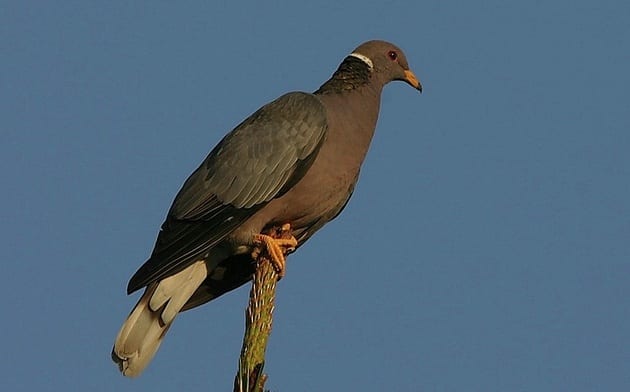
by Pigeon Patrol | Feb 6, 2023 | history of pigeons, MBCA, pet bird, Pigeon Control, Pigeon Droppings, Pigeon Patrol's Services
FERAL PIGEONS, WHICH LIVE ON every continent in the world except Antartica, are famously adaptable—They shack up all over, from San Francisco to London to Mumbai.
They are also in Calgary, where around 200 of them have made their home on the roof of the South Health Campus, a 269-bed hospital. This was an unwelcome development, since pigeons can carry disease, and they poop a lot.
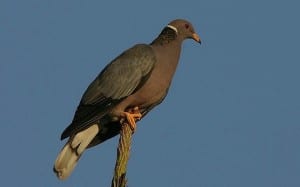
The hospital’s efforts to get rid of them—including with noise, which worked at first, before the birds got used to it—haven’t been successful, so recently they chose to get a little more serious. They’ve hired three baby peregrine falcons, according to the CBC, as a future anti-pigeon patrol.
A falconer, John Campbell, plans to release the falcons from the building, where it is hoped they will hunt down the pigeons and “other small game,” the CBC reports.
“You could [use] anything that would scare them, that would go after them as prey,” Campbell said. “It doesn’t have to be falcons but the falcons work very well.”
It will be a little time before the falcons get to the hunting, as just one has fledged so far. In the meantime, though, they’re being fed dead pigeons to give them a taste for pigeon blood.
Source
Pigeon Patrol Products & Services is the leading manufacturer and distributor or bird deterrent (control) products in Canada. Pigeon Patrol products have solved pest bird problems in industrial, commercial, and residential settings since 2000, by using safe and humane bird
deterrents with only bird and animal friendly solutions. At Pigeon Patrol, we manufacture and offer a variety of bird deterrents, ranging from Ultra-flex Bird Spikes with UV protection, Bird Netting, 4-S Bird Gel and the best Ultrasonic and audible sound devices on the market today.
Voted Best Canadian wholesaler for Bird Deterrent products ten years in a row.
Contact us at 1 877-4-NO-BIRD,(604) 585-9279 or visit our website at www.pigeonpatrol.ca
Pigeon/Pigeon Patrol / Pigeons Roosing / Vancouver Pigeon Control / Bird Spikes / Bird Control / Bird Deterrent / PIgeon Deterrent / Surrey Pigeon Control / Pest / Seagull deterrent / Vancouver Pigeon Blog / Birds Inside Home / Pigeons in the cities / Ice Pigeons / What to do about pigeons / sparrows, Damage by Sparrows, How to Keep Raccoons Away, Why Are Raccoons Considered Pests / De-fence / Pigeon Nesting / Bird Droppings / Pigeon Dropping / woodpecker control / Professional Bird Control Company / Keep The Birds Away / Birds/rats/seagull/pigeon/woodpecker/dove/sparrow/pidgeon control/pidgeon problem/pidgeon control/flying rats/pigeon problems/ bird netting/bird gel/bird spray/bird nails/bird guard
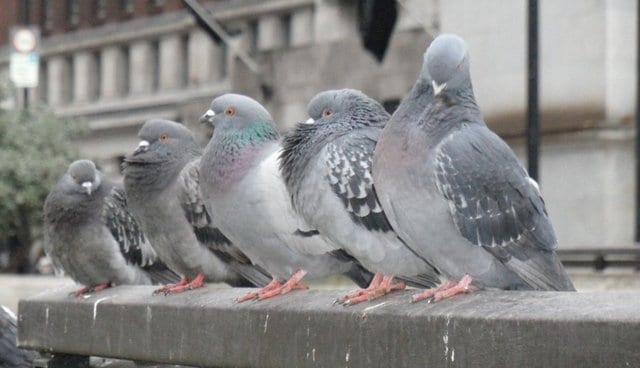
by Pigeon Patrol | Jan 19, 2023 | history of pigeons, MBCA, pet bird, Pigeon Control, Pigeon Droppings, Pigeon Patrol's Services, Pigeon Predators, Pigeon Spikes
Fancy a pigeon as a pet? They’re about to be legal again in the District of North Vancouver.
District council members voted 5-0 Monday night in favour of new bylaw governing domestic pigeons. It caps off a controversial two-year chapter for council, which originally voted to ban the pet birds in 2019.
Soon after, it came to light that Coun. Betty Forbes had lobbied Couns. Lisa Muri and Megan Curren behind the scenes to introduce the ban after years of complaints about her neighbour’s flock of pet pigeons.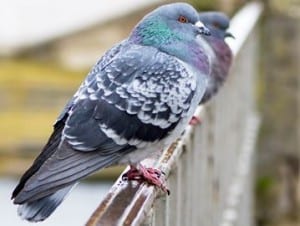
In February 2020, former information and privacy commissioner David Loukidelis released his report into the matter following an independent review. Among other things, he recommended that council shore up their training in ethics and oversight.
Council rescinded the ban last fall and sought to replace it with a modernized version of the district’s original bylaw dating back to 1971. The new bylaw passed Monday night limits the number of backyard squabs to 20 and governs the minimum size and setbacks for their roosts. It also makes enforcement easier for bylaw staff.
Coun. Jordan Back, one of the two council members who opposed the prohibition bylaw, said he was glad to see things largely put back to the way they were.
“This has certainly been a long and very costly process – something that never should have been brought forward in the first place. We were never dealing with a community concern,” he said.
Despite the independent investigation and now abandoned lawsuits, Coun. Mathew Bond said he feels the community is still owed some accountability for the whole “frivolous” process.
“I think that leaving those issues unresolved over the long term is detrimental to the integrity of this council,” he said.
When council held a special meeting on the matter last week, only three members of the community spoke out: two who argued pigeons are a threat to public health and one who said she had no problem’s living next to her own neighbour’s flock.
Mayor Mike Little said his view that pet pigeons are better suited to more rural communities had not changed, but he also found the public health arguments “spurious at best.”
“I think it’s fair to say that this is a pragmatic solution to the problem at hand,” he said.
Similarly, Curren said she has the same perspective on animal rights now as she did when she voted in favour of the prohibition.
“But I am opposed to the process, and I advocated for this bylaw to be brought back to a public process in since Nov. of 2019,” she said, noting that council did “fall short” of the district’s code of ethics. “When we have an opportunity to listen and to learn and to do better, then we need to do that.”
Coun. Jim Hanson, who also originally voted in favour of the ban, said with only two or three known pigeon fanciers in the district, the issue wasn’t worth any more of council’s time.
“If the keeping of pigeons becomes a community issue justifying further involvement, no doubt we will hear about that,” he said.
Muri and Forbes both recused themselves from the discussion and vote.
Source
Pigeon Patrol Products & Services is the leading manufacturer and distributor or bird deterrent (control) products in Canada. Pigeon Patrol products have solved pest bird problems in industrial, commercial, and residential settings since 2000, by using safe and humane bird deterrents with only bird and animal friendly solutions. At Pigeon Patrol, we manufacture and offer a variety of bird deterrents, ranging from Ultra-flex Bird Spikes with UV protection, Bird Netting, 4-S Bird Gel and the best Ultrasonic and audible sound devices on the market today.
Voted Best Canadian wholesaler for Bird Deterrent products ten years in a row.
Contact us at 1 877-4-NO-BIRD,(604) 585-9279 or visit our website at www.pigeonpatrol.ca
Pigeon/Pigeon Patrol / Pigeons Roosing / Vancouver Pigeon Control / Bird Spikes / Bird Control / Bird Deterrent / PIgeon Deterrent / Surrey Pigeon Control / Pest / Seagull deterrent / Vancouver Pigeon Blog / Birds Inside Home / Pigeons in the cities / Ice Pigeons / What to do about pigeons / sparrows, Damage by Sparrows, How to Keep Raccoons Away, Why Are Raccoons Considered Pests / De-fence / Pigeon Nesting / Bird Droppings / Pigeon Dropping / woodpecker control / Professional Bird Control Company / Keep The Birds Away / Birds/rats/seagull/pigeon/woodpecker/dove/sparrow/pidgeon control/pidgeon problem/pidgeon control/flying rats/pigeon problems/ bird netting/bird gel/bird spray/bird nails/bird guard











